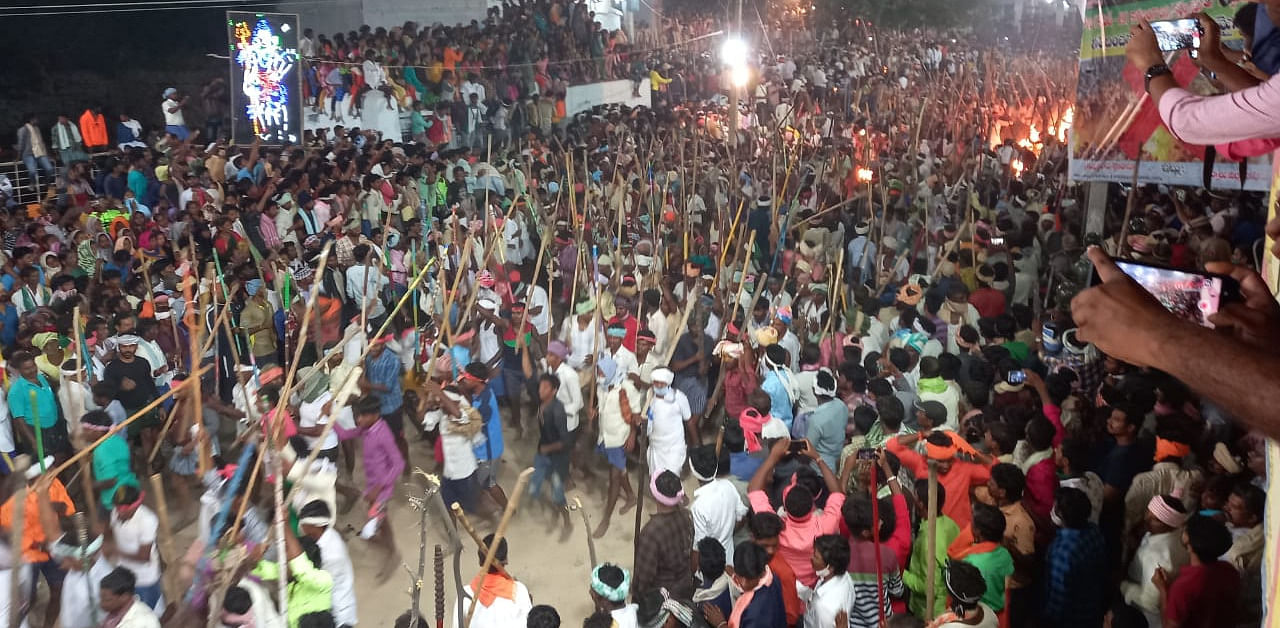
The Covid-19 threat seems trivial compared to the gory ritual of a stick fight often involving the cracking of skulls.
The pandemic scare elsewhere could not force the devout villagers along the Andhra-Karnataka border give a break to Banni, the Dasara night tradition when scores of participants are wounded by the belligerent swirling of sticks.
The age-old tradition is in honour of Lord Maala Malleshwara Swamy, a popular local deity at Devaragattu, close to Karnataka border, in Kurnool district. It attracts over a lakh people every year, from the two states.
The armed combat begins around midnight between men, mostly farmers, of the surrounding villages split into groups. They battle with sticks to get hold of the procession idols of Malleshwara Swamy (Siva) and Mallamma (Parvati).
The ritual resulting in broken bones, split skulls continues till the crack of dawn.
Despite a fortnight-long awareness drive about the Covid-19 spread, official ban on Banni, imposition of 144 section barring public assembly and deployment of about 1500 police personnel, the event took place on Monday night, as usual.
By Tuesday morning, over 45 people were reportedly wounded and treated at a medical camp, and three needed hospital admittance for their serious injuries.
“We did everything possible to discourage the event this year, including setting up check-posts at Alur etc places to stop the devotees from Karnataka, Anantapuram,” Ramakrishna Reddy, revenue divisional officer, Adoni told DH.
However, the Banni street which appeared deserted till about 11 pm, was swarming with people who made their way through the hills and forests.
Officials say that due to the restrictions, the audience number fell below 50 thousand this year and the men wielding lathis to about five thousand.
“We could not hold the people back beyond a point as it leads to further flaring of tempers. They are attached to the tradition from several generations and believe the Mallanna Swamy would protect them from every harm including the virus,” a district official says.
The Kurnool administration has been trying for years now to deter the locals from indulging in the injurious celebration.
There is no official record of the Banni origins but is believed to be a tradition passed on from the Vijayanagara period. Some locals claim that spears, axes were used earlier, in suggestion that “the violence as such has drastically come down. A few lathis are adorned with steel rings at the top to make the blow even bloodier.
“The popularity and magnitude of the event has only widened over the decades. Though it is mostly injuries, once in a few years a death happens,” says Nagaraju Barki (40) of Neraneki village.
However, these deaths in many cases are attributed to rivals settling their unresolved conflicts using Banni as cover.